The Intelligent Design Debate Rages On
 In an earlier series, one of some 25 posts in length that ended with Order and Ontogeny (I.D. XXV), I considered the merits and demerits of the so-called theory of Intelligent Design as it is presented by William A. Dembski in books such as ... well, such as the one whose title is, appropriately, Intelligent Design.
In an earlier series, one of some 25 posts in length that ended with Order and Ontogeny (I.D. XXV), I considered the merits and demerits of the so-called theory of Intelligent Design as it is presented by William A. Dembski in books such as ... well, such as the one whose title is, appropriately, Intelligent Design.I said that prior to accepting Dembski's conclusion — that there needs to have been a transcendent "designer" behind evolution's greatest achievements of complexity — one must first deal with the apparent tendency of living systems to "self-organize" and produce complex "order for free."
 If self-organized complexity is possible and even ineluctable, as Stuart Kauffman claims it is in At Home in the Universe, then Dembski's so-called "specifed complexity" may not in fact be the direct handiwork of God.
If self-organized complexity is possible and even ineluctable, as Stuart Kauffman claims it is in At Home in the Universe, then Dembski's so-called "specifed complexity" may not in fact be the direct handiwork of God.I now cite more argumentation against Dembski. It appears in Skeptic magazine, Vol. 11 No. 4, 2005. Mark Perakh writes in "The Dream World of William Dembski's Creationism" (an alternate version of which may be read here) that Dembski fails to prover the validity of:
- His use of "specified complexity" in demonstrating intelligent design
- His use of "complex specified information" (CSI) in demonstrating intelligent design
- His "Explanatory Filter" proof that chance and necessity alone don't explain CSI
- His "Law of Conservation of Information": Natural causes can't generate CSI
- His use of the "No Free Lunch" theorem in arguing against Darwinian evolution
- His use of the "displacement problem" in arguing against Darwinian evolution
This unusual shape is actually "the simplest form of all observed snowflakes," Perakh says, so in this one case at least, simplicity, not complexity, is what actually goes along with rarity or improbability.
It seems to me, however, that Dembski could argue that a snowfall that contains an admixture of triangular flakes — these flakes never occur by themselves — is more elaborately diverse in makeup than is a "regular" snowfall with only six-sided flakes, and so it is more complex ... and less probable. By transferring probability/complexity measurements from the individual flakes to the totality of the snowfall, Dembski's mode of argument might easily be rescued.
Which goes to show that wholly negative arguments such as Perakh's — which challenge what is itself basically a negative argument by Dembski that it is not the case that godless Darwinian evolution theory is enough to explain evolution — are intrinsically problematic. Dembski says no to Darwin by means of his argument. Then Perakh says no to Dembski by means of his counterargument. In neither case is there any suggestion made that might be of an empirically verifiable or falsifiable sort. It's all argumentation, and negative argumentation to boot.
Let us leave the realm of pure argument, then, and let me cite "Revival of the 'intelligent design' debate raises many questions," Stephen Vicchio's op-ed piece appearing in The Baltimore Sun of Thurs., Sept. 1, 2005, as coming down on the side of science qua science. Vicchio, who teaches philosophy at the College of Notre Dame here in Batimore, is a frequent contributor to my local newspaper's opinion pages. In this article, he takes on the Intelligent Design movement.
"The theory of intelligent design — that an organism's complexity is evidence for the existence of a cosmic designer — has existed in the history of philosophy since the late 18th century," he writes. According to William Paley, writing prior to Darwin, "In the same way a watch implies a watchmaker, the orderliness of the universe ... implied a universe maker. This argument in philosophical circles came to be called the teleological argument, or the argument from design."
This teleological argument-from-design, says Vicchio, was attacked by some of the great minds of the age: it was "convincingly done in by Immanuel Kant and David Hume with devastating arguments ... in the late 18th century." By this I assume he means that Kant, Hume, and others disproved the notion that you could prove God's existence by argument alone.
So ID, the modern incarnation of the teleological argument-from-design, doesn't pan out among the philosophically inclined today. Nor does ID work as pure science, however, says Vicchio: "With intelligent design, we do not have a scientific theory because there is no way of showing how it could be false."
By this he means no experimental or empirical way can be devised to falsify the claims of Dembski and his fellow ID provocateurs, like Michael Behe. Negative arguments such as I discussed above fall into a different category, exactly the same one as the positive arguments from design deep-sixed by Kant and Hume. Ultimately, science stands or falls not on argument but on evidence. Along these lines, "the amount of sheer, physical, scientific evidence that Charles Darwin was right" impresses Vicchio.
"A corresponding amount of evidence could not possibly exist for intelligent design," Vicchio asserts, "for scientific theories are not proved, they can only be falsified. To show that gravity is a competent scientific theory, we would have to show one example where it did not work or devise a plan by which we could show it is not true."
How could any example ever be given to show that divine intervention in evolutionary processes didn't happen?
Plainly, no such examples could ever be adduced. ID, then, is not empirically falsifiable. Ergo, ID is not a scientific theory. QED.






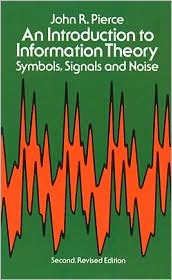

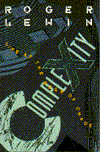

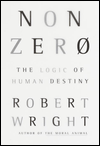

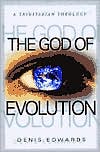

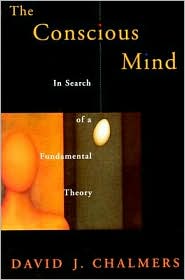
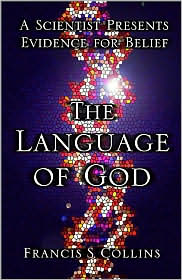


0 Comments:
Post a Comment
<< Home